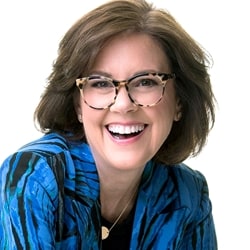Why spend $80,000 and take two years off to become senior management material? So asks BusinessWeek in a write-up on our pal Seth Godin, P&G brand manager Josh Kaufman, and other proponents of the self-education movement called the Personal MBA....
Inspired by Seth (seriously, who isn't?), Kaufman developed a manifesto on mastering business without spending an arm and a leg on tuition. B-schools, he writes, "don't have a monopoly on worldly wisdom."
As its biggest champion, Josh calls the personal MBA "more flexible than a traditional MBA program, doesn't involve going into massive debt, and won't interrupt your income stream for two years. Just set aside some dedicated reading time, pick up a good book, learn as much as you can, and go out and make great things happen."
The real work of the personal MBA is–well, reading a bunch of books: 42, in fact. "By investing time and effort in using these resources, you will progressively develop a greater understanding of business and increase your effectiveness at work," he writes. "Even if you only read a few, you'll get a substantial return on your investment." Josh calls the personal MBA movement "an experiment in educational entrepreneurism."
However you feel about the power of a personal MBA–whether you believe that reading a stack of books and chatting about them with others online will earn you the same level of knowledge as two years at Wharton or Stanford or wherever–is only part of the story. So is whether you think the particular mix of books Josh suggests offers the best grounding in all aspects of business. (I think he should have emphasized better and clearer writing, for example–why not do one better than what the business schools offer?–but I'm digressing–.)
Anyway, what I think is the more interesting aspect of the movement is the tiny but powerful viral component of it–Josh credits Hugh MacLeod with coining the term "global microbrand." The global microbrand is "a small brand that is recognized all over the world, spread primarily via the power of the internet," Josh writes. Hugh references several microbrands here, but there are zillions. Don't you know a bunch?
The larger point is this: We no longer need to fear the scattering and dispersion of audiences. Movements, social networks, causes and businesses worldwide are collecting–bringing together and rallying–their communities, voices, members and customers via the power of the Internet.
Oh–and via BusinessWeek, of course. In my mind, a delicious part of the Personal MBA story is that stodgy old BusinessWeek–BusinessWeek, for God's sake!–commits so many inches to the movement. That's as much a recognition of global microbrands as it is a recognition of the Personal MBA itself. What a powerful statement indeed.
Did you like this article?
Know someone who would enjoy it too? Share with your friends, free of charge, no sign up required! Simply share this link, and they will get instant access…
Know someone who would enjoy it too? Share with your friends, free of charge, no sign up required! Simply share this link, and they will get instant access…
Web Sites Articles
You may like these other MarketingProfs articles related to Web Sites:
- The Largest Traffic Referrers on the Web
- Five Powerful Benefits of Chatbots in B2B Marketing
- The Incredible Amount of Data Generated Online Each Minute [Infographic]
- Subdomain vs. Subdirectory: Which Is Better for Your Website? [Infographic]
- How to Get Started With Organic Website Marketing [Infographic]
- How Marketers Can Navigate a World Minus Cookies | Marketing Smarts Live Show




